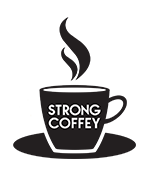My eyes opened to the screech of the alarm.
“Ugh, not again.”
I was 18. I weighed over 300 pounds. Despite having many advantages most folks could only dream of 1, I felt like I was waking up in prison.
Pushing myself into a seated position felt awkward and cumbersome. Walking up stairs made my joints ache and my lungs burn.
Food 2 was my comfort.
And this is the ultimate paradox of the Compulsive, Emotional Overeater: The more I comforted myself, the more pain I was in.
My then-girlfriend 3 was older, wiser, and healthier than me. She loved my body as it was, and had never asked me to lose weight or to change in any way.
One day, I told her how I was feeling – like I was living in a prison of my own flesh and fatigue – and, for the first time ever, we talked about food beyond what we were having for dinner.

Me, then & now
“When my clothes start to feel tight or my energy is low, I stop eating carbs for a while. In a couple weeks, my clothes fit well again and I feel better.”
I wanted to feel better. I needed to feel better.
I trusted her, so I took her suggestion.
Starting the next day, I ate eggs without toast, lunch meat without bread or chips, sausage, meatballs, and chicken without pasta, rice, or potatoes. I drove past drive-thrus. I introduced myself to the salad bar.
At night, instead of ice cream, cookies, or sugary cereal, I ate protein.
At first, I felt like hell. 4 I was headache-y and irritable 5 My energy was low. My mood was lower.
If I hadn’t trusted the person who told me about the whole low carb thing, I never could’ve made it through that period.
A few days later, I felt better than I had ever felt in my life.
I woke up before my alarm, rested and clear-headed. My joints ached less. I had what felt like honest, 6 consistent energy all day.
I had an easier time finding my keys in the morning.
I smiled more.
I felt alive, man. ALIVE.
I had no idea how shitty I felt until I started feeling better.
Before you think I’m plugging low-carb diets, let me make something clear: Diets don’t work. The science shows it. My personal experience backs it up. Probably yours does, too. You diet, lose some weight, gain it back (plus a little more) and on and on.
No, this isn’t me endorsing low carb diets. This is me endorsing recovery.
Like so many others, the structure of a low-carb diet provided me my first taste of recovery from food addiction.
FOOD ADDICTION
The jury is still out on whether or not Food Addiction is a legitimate diagnosis. A food addict’s tolerance for baked goods, ice cream, and fast food doesn’t build in the same clear, linear way as an alcoholic’s tolerance for Merlot or micro-brews. Rarely do you find someone who’s McDonald’s habit is up to 12 Happy Meals a day. But tolerance is only one of several markers of addiction. Others include:
Withdrawal: Ever try to quit added sugar, fast food, baked goods and/or desserts cold turkey? That nagging, full-body desire you feel to shovel all that stuff in your mouth? That thing we’ve learned to call “deprivation”? That’s withdrawal.
Repeated attempts to quit / control use: How many diets have you been on, Love? How many times have you said to yourself, “I’m not gonna diet, I’m just not gonna eat pasta” or “I’m never dieting again, but I’m gonna eat only three meals a day” or “I’m never dieting again, but I’m only gonna eat things from the periphery of the supermarket” or “Diets don’t work, but I really need to feel better in my body, so no more processed food!” only to go strong for a while and then fall right back into the same old pattern? No, really – do the math.
Spending a lot of time “using”: First, there’s the time you spend eating. Then, there’s the time you spend thinking about what you’ll eat, how much you’ll eat, when you’ll eat, craving a certain food, regretting having eaten a certain food, wishing you had endless access to a certain food.
Physical / psychological problems related to food and eating: If you have Type 2 Diabetes, high BP or cholesterol, heart disease, osteoarthritis, sleep apnea, fatty liver or kidney disease, or have had high blood sugar during a pregnancy, you can likely check this box. Psychological problems are less cut and dry, but consider this: Does how you eat or relate to food rent more space in your head than you like? Do you suspect you’d feel more peaceful and generally satisfied if you had a healthy relationship to food and eating? If the answer is yes, you’re in the right place.
Activities given up to use: Giving up softball because you’re not comfortable running. Not having sex with your partner because you prefer to sit in front of the TV with a bowl of ice cream. Opting to eat leftovers with a spoon standing alone in your kitchen when you told yourself you’d write.
It’s super weird when you read your own story in some strangers blog, huh?
KETO
The Ketogenic Diet is enjoying its time in the spotlight. Like Atkins before it, Keto encourages followers to abstain from sugar and simple carbs. 7
For many, Keto feels like a means to an end – weight loss.
For others, Keto 8 is a means to an end – but it also makes them feel like they’re floating on a soft, glittery, pink cloud of energy, clarity, and vitality. Keto makes some people feel like they’re free and alive, some for the first time ever.
Much like the alcoholic who stops drinking.
And the opiate addict who kicks.
And the smoker who quits.
And any addict who allows herself to embrace recovery.
Keto and other, similar diets give food addicts a socially-acceptable back door into recovery – a reason to abstain from the foods and ways of eating that make you feel like hell without having to say, “I’m an addict.”
Saying “I’m doing Keto” can be a lot easier than admitting – to yourself or anyone else – that you’re hooked on certain foods and that the only way you can feel truly OK in your life or body is to cut that crap out of your life.
If you’re on Keto and you feel like you’ve been given a new lease on life, here’s my suggestion: While you’re feeling good, take some time to examine how you’ve related to food in the past. Ask yourself: Am I addicted to certain foods or ways of eating? Am I feeling better than ever in part because I’ve removed those foods and ways of eating from my life? If the answer is yes, hold on to that gift. Fight for it. Prioritize it. Accept that self-care, for you, may mean abstaining from those foods for life. And that’s ok.
It makes sense to shift your thinking from, “I’m on a diet,” towards, “This is how I eat because I want to feel well and enjoy my one precious life,” if that’s your truth.
RELAPSE
I lost 80 pounds in my low carb period.
More importantly, I spent those months feeling better than I’d ever felt. Clear, energized, and free of the bounds of an addiction I didn’t yet know I had.
Eventually, because I was eating low-carb as a temporary “fix,” I went back to eating sugar, fast food, baked treats, and desserty-type things.
I gained all the weight back, and more.
More importantly, I went back to feeling like hell. To feeling sluggish and cloudy and achey and angry and lazy and generally gross. All this at just 18 years old.
I considered giving up simple carbs and fast food again, but once I got a taste for the foods I’d been without, I didn’t want to give them up. No matter how badly I felt.
I lied to myself.
“Eh, it’s not so bad.”
“I bet everyone wakes up feeling like this.”
“Maybe the problem is my thyroid / blood count / mattress / air quality / astrological sign relative to the position of the planets / parents / bosses / beauty products / lack of activity 9…….”
You get the point.
My desire to relieve my cravings was bigger than my desire to enjoy my life.
This is addiction.
I went on for years in self-care limbo – I know what makes me feel well, and I prefer not to, thank you very much. And that’s where I stayed until the day when how I ate almost killed me.
It wasn’t until I accepted what was true FOR ME that I could take good care of myself and my body:
- I am not capable of eating certain foods in moderation
- When I try to eat certain foods in moderation, pressure builds until one day I snap and wildly overcompensate, undoing any health gains I might have made
- When I abstain completely from certain foods and ways of eating, I feel free, energized, and alive
- Self-care that doesn’t include abstinence from certain foods and ways of eating is like trying to bail out the Titanic with a thimble.
It wasn’t until I embraced the addictive nature of my relationship to certain foods that I was able to take good care of myself, feel my best, and begin to piece together a life I love, and love to wake up into.
Examine YOUR history. Embrace what’s true for YOU. Take good care of you based on what YOU need to feel well. And, if that happens to look a lot like rocking Keto forever and ever, amen – so be it.
Notes:
- Being white, having a roof over my head, having access to good food and health care and education… ↩
- Piles of cream-sauce-covered pasta, platters of cheese-covered french fries, muffins, snack cakes, cookies, fast food of every variety. ↩
- Hi, Dana. I hope you’re well. ↩
- Hello, withdrawal. ↩
- Yes, more so than usual. ↩
- Not caffeine-induced ↩
- Yes, yes, there are differences between the two. Yes, yes – thank you. This post isn’t about the details of different low carb diets. Google it. ↩
- Or any low carb / low-to-no-processed food diet ↩
- a lack of activity absolutely contributed to my general malaise, but no gym membership can counteract the repercussions of unchecked addiction. ↩

